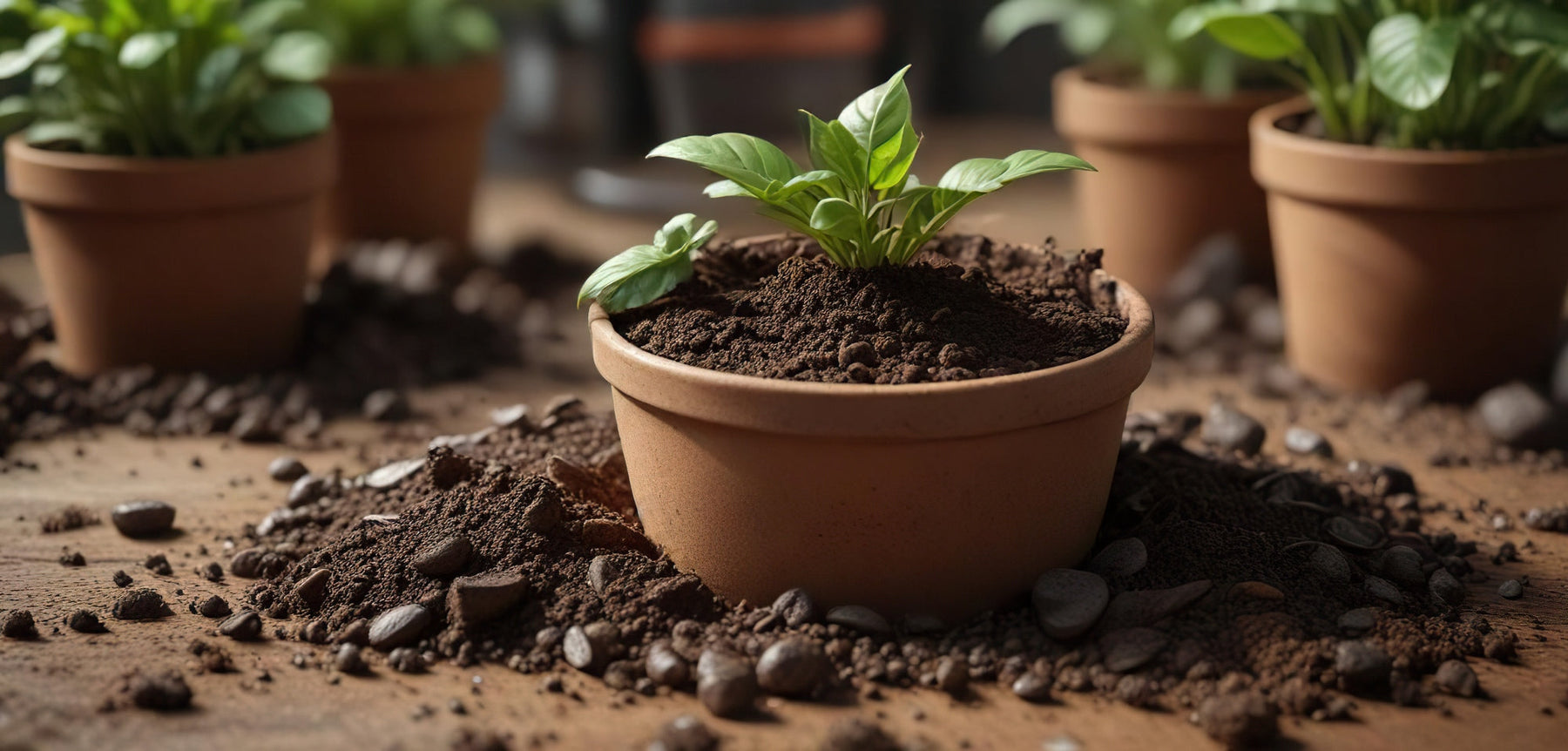
How To Use Coffee Grounds in Your Garden
If you love brewing at home, you probably produce a mountain of coffee grounds every week. Grounds can certainly mount up quickly but when your knock box is full, don’t consign its contents to your waste bin.
Coffee grounds can be beneficial to your garden in several ways and so are worth saving.
What about the caffeine?
Most plants don’t like caffeine as it can inhibit root development and growth. Indeed, high levels of caffeine are poisonous to plants.
However, used coffee grounds are generally safe as most of the caffeine coffee contains ends up in the drinks that you make. For this reason, never apply unused grounds to any area of your garden.
How can coffee grounds can benefit your garden?
When added to compost, coffee grounds contribute nitrogen as they decompose and attract worms – there’s no doubt that worms love grounds! Nitrogen is an essential nutrient that promotes the breakdown of organic material. It also enriches the completed compost.
Coffee grounds acidify soil while improving its structure and so are beneficial for acid-loving plants including hydrangeas and vegetables such as tomatoes, carrots, and radishes.
Soil is enriched by the nitrogen, phosphorus and potassium in coffee grounds. But these nutrients are only present in small quantities. Coffee grounds should be used to supplement fertilisers, not to replace them.
You can sprinkle coffee grounds around plants to deter slugs and snails. Coffee grounds are earth-friendly options whereas slug pellets contain poisons that are dangerous for pets, wildlife and children. Some gardeners feel that coffee grounds also deter ants.
Dry your coffee grounds
While coffee grounds are generally great additions to soil and compost, it is best to dry them out before using them. Wet grounds tend to clump. The clumps take time to break down and can prevent water from soaking into the soil, starving plants of hydration.
Dried grounds are easier to distribute and can even improve the soil's ability to retain water, which is helpful during dry spells or in well-drained areas which tend to dry out too quickly and so require constant watering.
It is a good idea to add grounds to a layer of organic mulch before spreading it as the organic material will break up the grounds and prevent them from clumping. Alternatively mix grounds into compost before applying it to your garden.
When are coffee grounds bad for your garden?
Plants that favour alkaline soil may not fare well when fertilised with grounds. These plants include achillea, lavender, leeks, lilacs, rosemary, sunflowers, and thyme. Always check which of your plants would benefit from your acidic coffee grounds before applying them to your garden.
It’s best not to add coffee grounds to soil or compost in which seedlings are growing as the grounds could stifle the young plants and inhibit their growth.
As caffeine is toxic to cats and dogs, grounds should be used advisedly in areas that could be accessed by pets. Caffeine can impact the heart and blood pressure of animals and may cause seizures.

Helpful organic waste
Did you know that teabags are also great for your garden? The tannins in tea provide nutrients for your soil. Orange peel is another natural pest deterrent that can be scattered around plants. Crushed eggshells can also be added to the soil or sprinkled on the surface to deter slugs and snails. Better still, eggshells enrich the soil with calcium.
Down to earth
The negative impact of pesticides on the environment and human health cannot be overstated. Applying organic waste to your garden, including coffee grounds, can help to reduce the need for pesticides while enriching your soil.
Surely, used coffee grounds belong in your garden and not in your bin.



Leave a comment